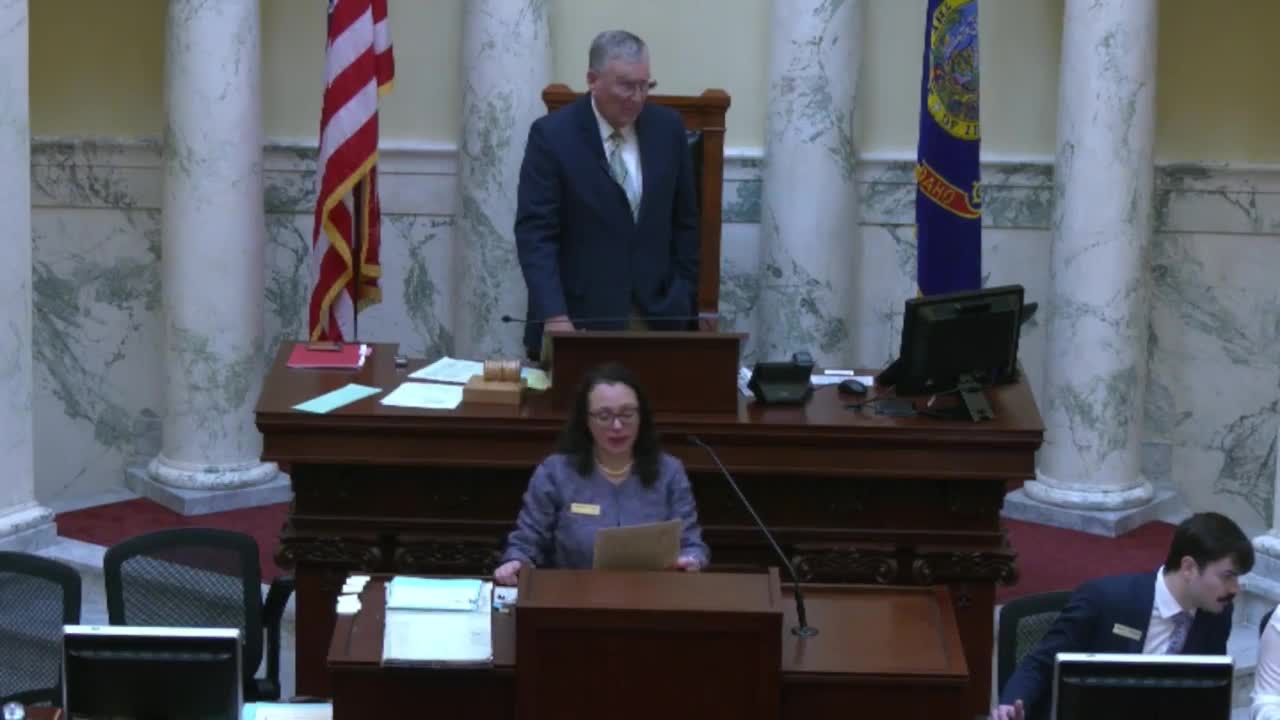Idaho Senate rejects expansion of Empowering Parents K‑12 grant program (SB 10-25)
Get AI-powered insights, summaries, and transcripts
Subscribe
Summary
On Feb. 14, 2025, the Idaho Senate voted 6–28 (1 absent) to reject Senate Bill 10‑25, which would have expanded the Empowering Parents grant program to cover tuition and fees at participating nonpublic K‑12 and prekindergarten programs.
BOISE, Idaho — On Feb. 14, 2025, the Idaho Senate defeated Senate Bill 10‑25 as amended, a bill that would have expanded the state's Empowering Parents grant program to cover tuition and fees at participating nonpublic K‑12 schools and prekindergarten programs. The final roll call showed six senators voting in favor, 28 against and one absent; the bill failed and was retained in the office of the secretary.
Proponents said the bill would use an existing grant to deliver targeted help to lower‑income families and add basic accountability; opponents said it would route public dollars to private and religious schools and expand the state's education responsibilities. "School choice is a great thing," said Senator Lynch. "This legislation was meant to strike a balance between the flexibility parents want and the accountability we owe under the state constitution," he said.
SB 10‑25, as described on the Senate floor, would have altered the Empowering Parents grant program in several specific ways: it would have raised the per‑student grant maximum from $1,000 to $5,000, expanded eligible uses to include tuition and fees (while excluding daycare), and increased the program cap from $30 million to $50 million. The bill proposed income tiers for award distribution: 75% of funds reserved for households earning under $60,000 a year, 20% for households earning $60,000–$80,000, and 5% for households above $80,000. Funds would have to be spent within three years or revert to the program.
The measure also included accountability and safety provisions for participating nonpublic schools: secondary schools would have to hold accreditation from an accrediting body; participating schools would be required to maintain and report enrollment and student performance data to the State Department, conduct regular assessments showing student progress, and require fingerprinting and background checks for staff with unsupervised access to students. The bill explicitly stated it would not prevent homeschoolers from participating if they chose to enroll in the program.
Opponents raised constitutional and fiscal objections on the Senate floor. "Article IX, Section 5 of our constitution is very clear that no public dollars should be going to a religious entity," said Senator Ward Engelking. Senator Sarah Hart cited the constitution's education clause, saying the state's duty to "establish and maintain a general uniform and thorough system of public free common schools" counsels against expanding the scope of public responsibility. Senator Lenny criticized current uses of the existing program and said, "I don't think it expands it in the correct way. I would rather see something like this repealed."
Supporters, including Senator Cook and Senator Burton Shaw, said the bill targeted lower‑income students and would create reporting that makes the program auditable by appropriators. "This bill allows me to see where the money is going," Senator Cook said, adding that visibility would let lawmakers adjust the program later if it did not meet expectations.
Before final consideration the Senate voted to suspend rules and take up SB 10‑25 immediately. The motion to suspend rules carried (the Senate recorded 34 in favor and 1 absent on the suspension motion). After debate the Senate proceeded to a final roll call on passage; the clerk announced the 6–28–1 result and that the bill had failed and would be retained in the secretary's office.
No amendment that changed the bill's disposition was adopted on the floor. The debate focused on constitutional limits on using public funds with religious institutions, the program's intended income targeting, and whether the bill provided sufficient auditing and accountability for taxpayer dollars. The bill sponsor and backers emphasized the income tiers and reporting requirements as safeguards; opponents emphasized constitutional language and potential long‑term budget growth for voucher‑style programs.
With SB 10‑25 defeated, there was no further Senate action on the measure during the Feb. 14 session. The bill's failure leaves the Empowering Parents program at existing authorization levels and with the previously enacted structure.
Votes at a glance
- Motion to suspend rules and take up SB 10‑25: passed (recorded on the floor as 34 yes, 1 absent). - Final passage of SB 10‑25 as amended: failed, 6 yes, 28 no, 1 absent; bill retained in the office of the secretary.
